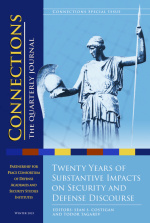The emergence of newly independent states in the Caucasus at the end of the Cold War presented challenges to Turkey while enlarging its role. The collapse of the Soviet Union removed the century-old Soviet/Russian threat, simultaneously creating a power vacuum on Turkey’s borders. While Turkey had traditionally avoided involvement in regional politics, it has since been drawn into the volatile new politics of the region. In this environment, Turkey became an important actor in the region due to its strong historical ties, the attraction of its geographic position linking the region to Europe, and its economic, political, and security relationships with Azerbaijan and Georgia. Over the past thirty years, Turkey has become one of the prominent players in a region where its involvement has again increased recently after the Second Karabakh War. Although its re-engagement with Armenia is progressing slowly, and geopolitical changes and economic and political conditions in the region are unlikely to stabilize for some years, it is evident that Turkey will continue to create new networks of interdependency between Ankara and the regional capitals.
Reviewed article
Turkey’s Caucasus Policies, 2000-2022
Abstract:
Article statistics
Aydin, Mustafa. 2023. “Turkey’s Caucasus Policies, 2000-2022”. Connections: The Quarterly Journal 22 (1): 79-90. doi:https://doi.org/10.11610/Connections.22.1.32.
3693
Views

